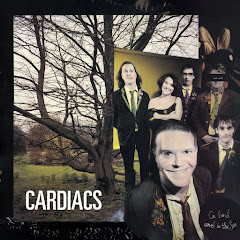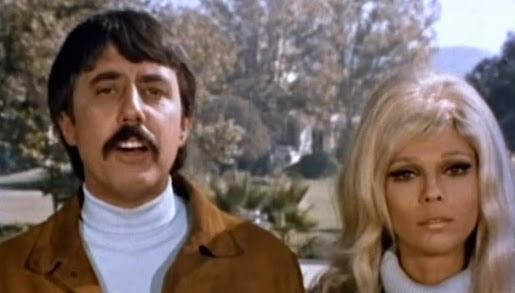Universal Congress Of - Prosperous and Qualified
This review arose from a short-lived thread on a music forum to which I belong. We were going to write about an album a month, but we only managed three, unfortunately.
Universal Congress Of are an American jazz ensemble from Los Angeles, founded in 1986 by Joe Baiza. Prosperous and Qualified (1988) was their second LP, following 1987's Joe Baiza & The Universal Congress Of.
The line-up on Prosperous and Qualified was:
- Joe Baiza – guitar, vocals
- Jacob Cohn – alto saxophone
- Ralph Gorodetsky – bass guitar
- Jason Kahn – drums
- Lynn Johnston – tenor saxophone, clarinet, bass guitar, baritone saxophone
- Steve Moss – tenor saxophone, vocals
The album isn't on Spotify and is quite hard to track down - however there's a YouTube playlist that I made here.
I did enjoy this album. My first few listens were as background music whilst I was working/writing, which I often find helpful to get the 'feel' of an album. And my first impressions were positive; prosaically speaking, it was a nice noise to have around. After a couple of days of this, I left it alone for a while, and then came back for sporadic intense listens. I then returned to 'looping' it for a couple of days to see if anything new leapt out at me.
And it didn't really. By that I mean that it isn't an album to suddenly strike you with any deep, hidden truths; it doesn't, for me, have much in the way of layers to unpeel. This isn't to say that it isn't a rewarding listen. If you'll forgive the banality, it's a solidly good album; it has sufficient variety, invention and impressive musicianship to prevent it ever being a chore to listen to.
The only thing that I (vaguely) knew about UCO were that they were Free Jazz. But they aren't, really; or at least, this album isn't. There are occasions where the sax threatens to break out into something more skronky and expansive (most notably 'Spreadin' The Malice' and 'L.L. Kook'), but in general the sax solos are pleasingly fluid and inventive but slightly restrained. The songs are relatively concise - nothing reaches the six-minute mark and most are of conventional pop-song length - and you can't help but wonder where they might have gone with a bit more space.
There's also plenty of sprightly, often quite bluesy guitar work, the best examples coming on the itchily funky 'Igor's Blues' and the taut, stuttering clatter of 'Hightime'. On the majority of tracks, the group fall back on an approach where the guitar and sax are synchronised melodically, a sort of jazz take on the Thin Lizzy dual-guitar attack. It's admirably tight and deftly done, but feels a little predictable, almost lazy; you get the sense that these musicians could do more. Towards the end of 'Igor's Blues' there's a brief passage that sees guitar and sax hitting a sweet spot of contrast, the sax momentarily breaking free whilst anchored by harshly chopping chords - one of the rare occasions (closer 'L.L. Kook' is another) where the two instruments take a break from either following each other slavishly or trading solos in traditional style.
As for the vocals - of which there are only a few - they are generally undistinguished. There's a nicely beat-poetry tone to sections of 'Love Camp', but they soon degenerate into cliché ('going down to love camp going to build myself a home / going down to love camp, I'll never be alone'). Elsewhere, they tend to trad rock 'n' roll stylings ('four on the floor and five on the wall'; 'mellow down easy when you really wanna blow your top') and are rather incongruous if thankfully unobtrusive.
Prosperous and Qualified is, as I suspected on the first couple of listens, a decent album; the sort of thing that gets three and a half stars or 7/10. To its credit, I have not once tired of it over multiple listens. But it almost feels like a sampler of some description; something to guide you gently into more challenging material. You can't help but feel that if they'd run some of these ideas into each other, melding and linking them into more expansive, digressive pieces, that it it might have made for a more satisfying whole. This is why it falls short of thrilling and loses out on those top three marks.







Comments
Post a Comment